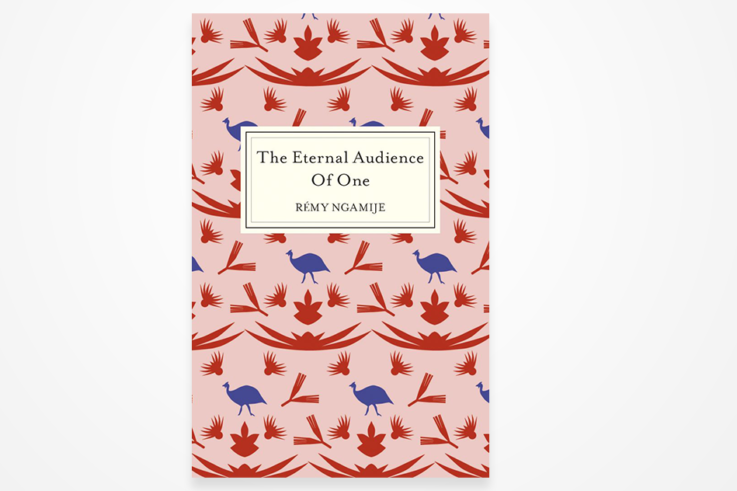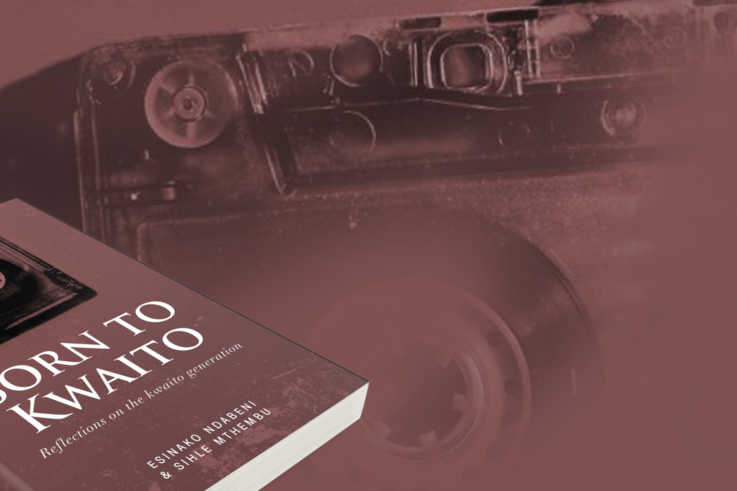Remy Ngamije’s International Debut
Blackbird Books is proud to announce that the English rights for The Eternal Audience of One, Rémy Ngamije’s debut novel, have been sold to Scout Press, an imprint of Simon and Schuster in the United States.
The Eternal Audience of One follows the life of Seraphin Turihamwe, a young man whose life is characterised by movement. After leaving Rwanda under duress and never feeling at rest in Namibia, which he believes is slow and boring, he finds himself fighting to fit in in Cape Town. So much about the city is designed to push people like him out. Through his interactions with a few reluctant mentors, loyal friends, and the women he carries on relationships with, he explores and performs different parts of his identity while dealing with other issues of family, race, immigrant life and love.
On the opportunity to have his work available worldwide Ngamije says ‘I am thrilled to be able to share this story with the wider world. Being a Blackbird author has been an enriching experience. It has driven home the importance of African writers being discovered by African publishers. Without Thabiso Mahlape’s vision, determination, and energy this milestone would not have been reached.”
Our mission at Blackbird Books is to be a launchpad for brilliant African writers starting out on their writing careers and we are especially proud of Ngamije.
This move comes from the dedication and care put in by Cecile Barendsma of Cecil B Literary Agency, the title’s representative. We are eternally grateful for her hard work in marketing and promoting this work.
AGAIN?
I don’t want another street protest, again
I don’t want to wear a doek, again
Hell, I don’t want to wear black again
I don’t want to watch my back when I am walking on the street, again
I don’t want to defend myself in my house, again
I don’t want to sit like a girl
I don’t want to cover up my thighs
I don’t want to mince my words, again
I don’t want to wince every time you lift your hand, again
I don’t want to scream ‘No’ as you thrust your penis in forcefully, again
And I really don’t want to die. Again.
About Stephina Zwane
Directing TV inserts was where it all started, ten years ago when she started working behind the scenes after years as on-screen talent.
After writing and directing her first TV film in 2012, it was only a matter of time until she moved to feature films. In 2016 she wrote and directed Love and Kwaito (2016) which was the official selection for the Jo’burg Film Festival in 2016 as well as the Ugu Film Festival in 2016.
Her second feature film as a writer and director, Baby Mamas (2018) was released in October in Southern African cinemas including in Namibia, Zimbabwe, Botswana and Swaziland. It was officially selected to be part of the 2018 Toronto Black Film Festival in May, the Durban International Film Festival in July as well as Lights, Camera, Africa Film Festival in September in Lagos as a closing film.
Her love for storytelling using words and visuals has made her a force to be reckoned with.
Am I a cockroach?
I grew up in a flat that had an infestation of cockroaches. The whole building had that same problem. You would be sitting with visitors in the dining room, next thing madam cockroach would start walking down the wall, going straight for the visitor’s hair. It always seemed like they only came out when there were visitors in the house. I grew up vowing that I would never stay in a house that had these little creatures. I grew to despise them. I was on a mission, if I saw a cockroach, I would have to kill it. And I killed a lot of them.
What I hated about them is that unlike other insects, the ladybug that was known to bring good luck or butterflies that look so elegant with their pretty wings, cockroaches were just bland; they had no purpose. What I hated the most about them, is that they thought that they were equal to us, humans. They had no qualms about climbing onto your plate of food and wanting to share in your pap and chakalaka. In the oven, they thought they deserved your roast chicken that you had worked hard to prepare. In the bread bin, they held parties, as though they knew the route to the bakery. Cockroaches had the audacity of thinking they had rights in my house. I worked tirelessly to ensure that I win the fight against cockroaches. If it meant I would spend an extra few minutes before bed, cleaning the kitchen and killing any of them that came to sight, I would do just that. I would celebrate when every few months we would fog the house with poison, that would kill them by the hundreds. I would help with cleaning up the house, certain that the next few weeks would be blissful, without these unwelcome, entitled intruders. I was the cockroach hunter.
In an interesting turn of events, in recent times in my country, I can’t help but feel that the hunter, has become the hunted. As a woman living in South Africa, I am hunted every single day. I am treated as though I don’t belong here, as though this land that I live in, doesn’t belong to me. I am treated as though I have no purpose. I am being treated as a cockroach who has the audacity to think I have rights in my own country. I live in fear of being killed at every corner of this country, as though I am the cockroach headed for a visitor’s head. I am treated as a nuisance, an infestation, because how dare I think I have rights? How dare I think that my life matters? How dare I think that I am equal to my hunter, a man? Until my hunter understands that we are equal, that my life is important, that it has a purpose, outside of just being in the kitchen and bearing children, and being owned by them, then I will continue to be fumigated. To be killed in broad daylight. To be hunted for no reason, without mercy. Until my hunter understands that my life is worth something, that I am human, I will continue to be killed without any remorse.
A message to our Blackbird readers
Dear Blackbird Books Reader,
In April of this year, Blackbird Books became an independent publishing press after four and a half years of being in a joint venture.
As a publishing platform, we remain focused on publishing stories that cut to the core of the black African experience, a literary gateway into Africa. We focus our energy on providing this platform to brilliant and especially young african authors who would otherwise not have the opportunity to tell stories that show and shape the wealth of African experiences.
There is nothing we love more than receiving your stories. It’s incredible just how many layers, how many textures there are to the stories that we can tell. This is at the core of our passion for Africa’s stories.
Blackbird Books is committed to giving these stories a platform from which the world can access them.
At this point, we are unable to receive and or commit to getting these stories out.
However, the effects and impact of the novel COVID_19 and our recent departure from Jacana Media, dictate that we immediately hold off on receiving unsolicited submissions. We want to make sure that given these very two big events, that we are restructuring and considering very carefully our every move.
This pandemic has put a tremendous impact on the economy causing some of the publishing houses and corporations to close down. To those who can, we ask for your support in keeping Blackbird Books and other local independent publishers’ doors open. Let’s unite and keep African literature alive by buying and promoting these books where we can. The power lies in your hands.
We are working very hard, to make sure that our existing books are back in retail and available for you to buy. So while you wait for our submission window to open again, pick up a Blackbird book. You can even purchase right here on our website.
We look forward to the wonderful books that we have planned for the future, as we continue to learn and grow stronger.
Stay home, stay safe and read a BBB book.
With Love,
The Blackbird Books team
Born To Kwaito
Born To Kwaito considers the meaning of kwaito music now. ‘Now’ not only as in ‘after 1994’ or the Truth Commission but as a place in the psyche of black people in post-apartheid South Africa.
This collection of essays tackles the changing meaning of the genre after its decline and its ever-contested relevance. Through rigorous historical analysis as well as threads of narrative journalism Born To Kwaito interrogates issues of artistic autonomy, the politics of language in the music, and whether the music is part of a strand within the larger feminist movement in South Africa.
Candid and insightful interviews from the genre’s foremost innovators and torchbearers, such as Mandla Spikiri, Arthur Mafokate, Robbie Malinga and Lance Stehr, provide unique historical context to kwaito music’s greatest highs, most captivating hits and most devastating lows. Born To Kwaito offers up a history of the genre from below by having conversations not only with musicians but with fans, engineers, photographers and filmmakers who bore witness to a revolution.








